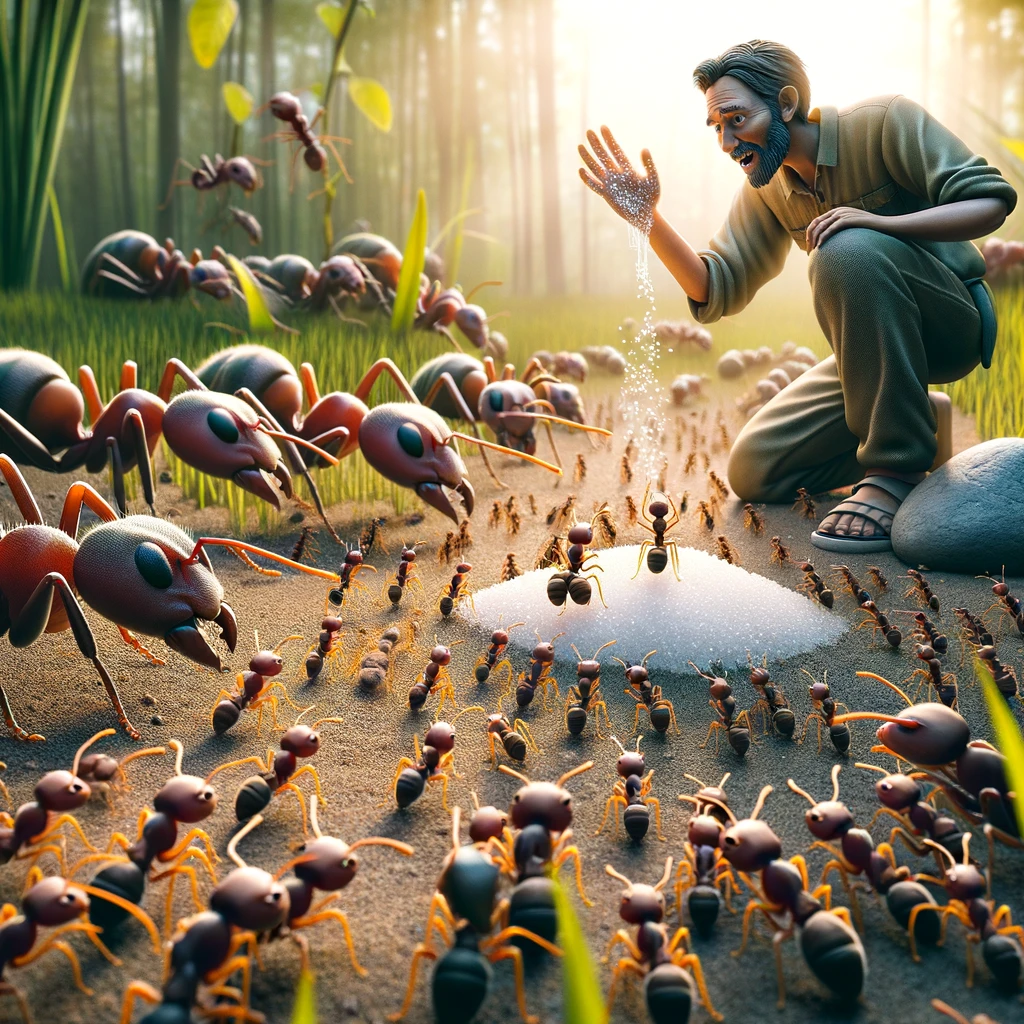The idea of writing an article on this topic came to my mind when I was watching a short video from one of my favourite YouTubers PJ Explained, while he was talking about God’s eligibility in MCU but it triggered me and I did a bit reacher and concluded that indeed if ants can communicate to us we are gods to them.
In exploring the concept of what it means to be a god, it’s essential to delve into the profound insights of Alan Moore, a revered comic book writer known for his intricate narratives that weave together magic, mysticism, and a deep understanding of the divine. Moore’s definition of divinity offers a radical departure from traditional views, presenting a perspective that reshapes our understanding of power, responsibility, and our place in the universe.
The Illusion of Power: A Moore-esque View
Consider the earlier analogy of humans and ants, where humans, with their overwhelming abilities, could appear as gods to ants. Alan Moore’s perspective invites us to expand this analogy further. Moore suggests that divinity isn’t about towering power over others but about recognizing the interconnected web of existence in which we all partake. In this light, power becomes not a tool for dominion but a shared essence that binds us to every particle and being in the universe.
The Relative Nature of Power: Moore’s Pantheism
Moore’s vision of godhood aligns with pantheistic beliefs, seeing God not as an external, anthropomorphic entity but as the sum total of the universe itself. This view dissolves the barriers between the creator and the creation, suggesting that everything is a manifestation of the divine. Thus, the relative difference in power that might designate one as a ‘god’ to another is merely a facet of a more expansive, interconnected divinity.
The Responsibility of Power: Empathy and Interconnection
Drawing from Moore’s philosophy, the responsibility that comes with power takes on new dimensions. It’s not merely about avoiding harm or acting benevolently; it’s about recognizing our actions as part of a larger, divine tapestry. This understanding fosters a deeper empathy towards all forms of life and a commitment to act in ways that honor our interconnectedness. It suggests that being god-like is less about exerting control and more about nurturing the sacredness that permeates every aspect of the cosmos.
The Quest for Understanding: Magic as a Path to the Divine
Moore’s belief in magic as a means to alter consciousness and perceive deeper truths about the universe provides a valuable framework for understanding our god-like potential. Magic, in Moore’s view, is about expanding our awareness to recognize the divinity within and around us. This approach encourages a quest for understanding that transcends conventional religious practices, seeking instead a direct, experiential knowledge of the divine essence that binds the universe.
Incorporating Alan Moore’s definition of God into our exploration, we see that being perceived as a god is not about wielding power over others but about understanding and participating in the divine essence that connects all things. This perspective not only redefines our notion of divinity but also emphasizes the profound responsibility we hold towards each other and the world we inhabit.
In conclusion, reimagining what it means to be a god through the lens of Alan Moore’s philosophy invites us to engage with the world and each other in a more compassionate, interconnected, and sacred manner. It challenges us to see godhood not as a position of power but as a state of being that recognizes and celebrates the inherent divinity in all aspects of existence.


